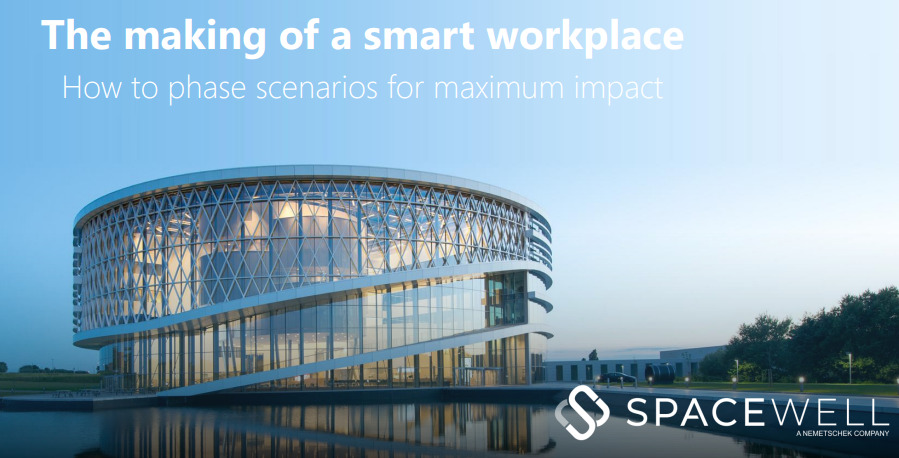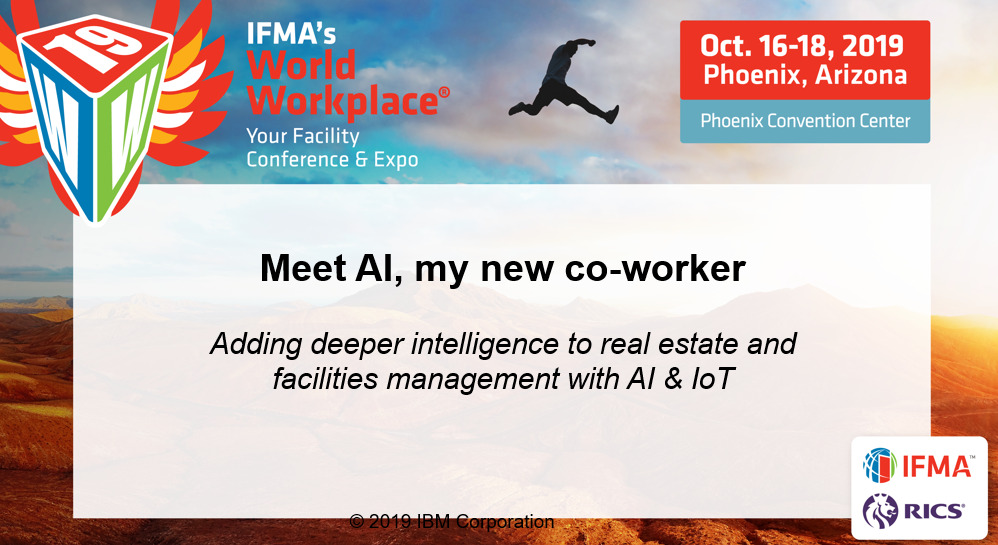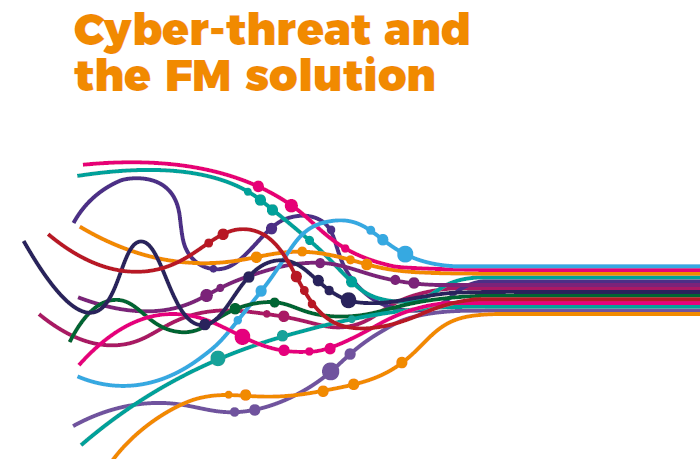Filter by
Subjects
Category
Type
IBM Global Real Estate Group Talks TRIRIGA, Data and How to Win Hearts and Minds
For today’s RE and FM professionals, it’s no longer about brick and mortar, or mops and buckets. It’s about using technology, understanding […]
The making of a smart workplace How to phase scenarios for maximum impact
There is no one-size-fits-all strategy for IoT deployment in the workplace. It largely depends on business priorities. Nevertheless, in a first stage, […]
Meet AI, My New Co-worker
Augmented Intelligence (AI) is beginning to take hold within many companies and with this advancement, there is a concern starting to surface […]
Ep. 46: Energy, IoT, and FM Tech | Mike Bruce and Eric Oliver - InScope Innovation
InScope Innovation is working with big data and the Internet of Things to gain insights from the interconnection of devices and systems […]
Welcome to the IoT era
The findings of a joint global research project between IFMA and JLL to uncover and explain exactly what IoT means for FM […]
Ep. 13: Automation and Technologies | Tom Buiocchi - CEO of ServiceChannel
FM industry-leader Tom Buiocchi of Service Channel discusses workplace trends, business process automation, and how technology will impact the future of the […]
Ep. 75: Inspiration for the Facility Management Community
Mayra Portalatin, RS, SFP is a Senior Professional at Facility Engineering Associates and President-Elect of The Capital Chapter of IFMA with a […]
The BIG Shift
By Kay Sargent
Artificial intelligence will continue to radically transform the workforce. Today, many organizations are introducing chatbots to improve the employee experience or to […]
Space Utilization in Real Time: How Sensors and the Internet of Things are Providing Essential Data to Support New Ways of Working
For decades, facility managers and planners have relied on guesswork to know how workspace is actually utilized. The problem has become acute […]
Cyber Threat and the FM solution
Cases of cyber attacks and corporate espionage are on the rise. As the lynchpin behind the maintenance of a building’s operational integrity, […]








